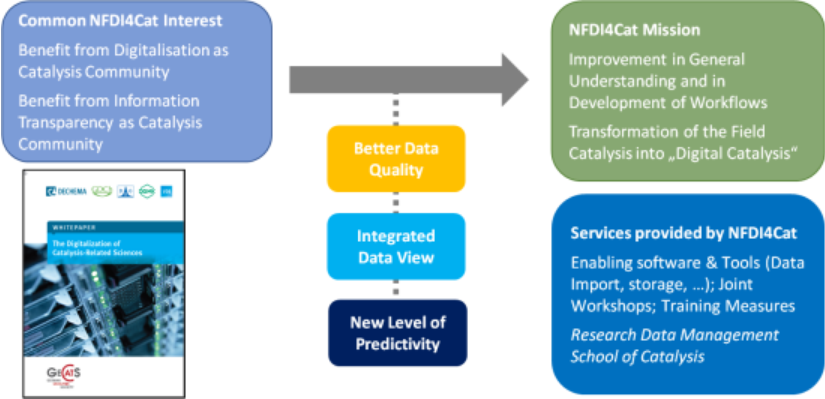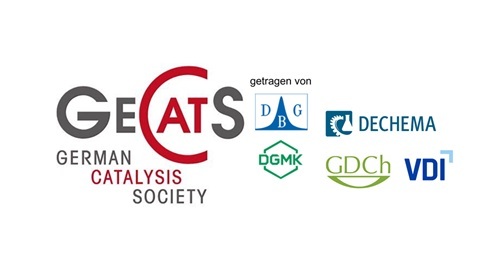
Catalysis is an interdisciplinary scientific technology field of strategic importance for the economy and the society as a whole. It is one of the most important core technologies for solving pressing challenges concerning climate change, supply of sustainable energy and supply of sustainable materials at the same time. Concrete examples of such pressing issues are the reduction or complete avoidance of CO2 emissions, the valorization of plastic waste and CO2 in chemical production, sustainable hydrogen generation, fuel cell technology, or feeding more than 7 billion people sustainably on this planet – they all require break-through advances in catalysis science and technology. To solve these pressing issues, a fundamental change is required in catalysis research, chemical engineering and process technology. A key challenge is to bring together the different disciplines in catalysis science and technology.
Community-driven and user-centred initiative

The NFDI4Cat consortium aims to redefine catalysis research in the digital age and add new facets of digital empowerment. Core challenge is a fundamentally improved understanding in catalysis sciences, the creation of workflows in catalysis that build a bridge between theory/simulation and experimental studies in design, characterization and kinetics of catalysts and the related engineering aspects. This challenge requires also a unified view on all catalysis disciplines to reveal universal guiding principles common to homogenous, bio, heterogeneous and electro-catalysis. This unification can only be successful if the full potential of the emerging data science technology is made accessible to each catalysis researcher. Vital elements of this strategy are the unification of data formats and the understanding of the requirements for the creation of high-performance information architectures that allow storage, exchange and analysis of data utilizing the latest state of the art tools of artificial intelligence.
The consortium embarks on the endeavor of realizing “digital catalysis” along a value chain of data oriented from “molecules to chemical processes”. This data-based value chain has a non-virtual analogue and is therefore seen as ambitious but of high intrinsic value allowing for a high degree of sustainability.
The consortium NFDI4Cat consists of experts from the field of homogeneous, heterogeneous, photo-, bio- and electro catalysis. The disciplines of reaction and process engineering are also represented in the consortium. The catalysis and engineering competences are complemented by expertise in the field of data science, high-performance computing and machine learning. NFDI4Cat will collaborate with the relevant partners in the fields of chemistry, materials science and engineering. Consulting with respect to future use of the results will be provided by a panel of representatives of the chemical industry.
The need for a concerted action to exploit the full potential of data generated in catalysis research is described in the recently published GeCatS paper “The Digitalization of Catalysis-Related Sciences”.
CONTACT:



